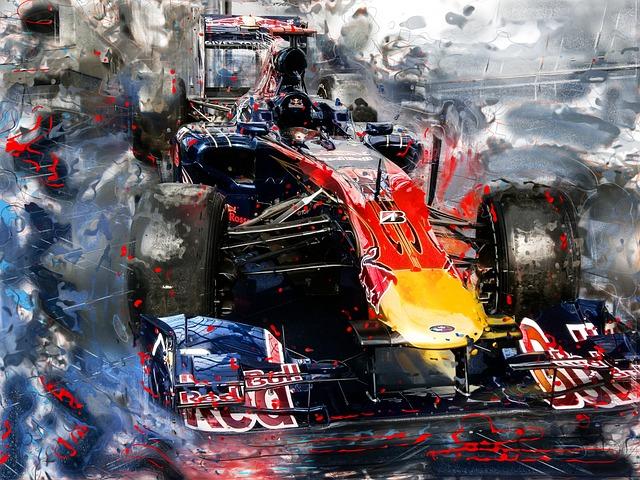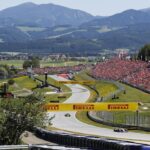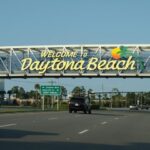The Challenges of Reviving the South African Grand Prix in Formula 1
As Formula 1 broadens its international reach, the idea of reinstating a South african Grand Prix has ignited enthusiasm among motorsport fans. Despite a rich history marked by memorable races at Kyalami in the late 20th century, the ambition to reintroduce this event into today’s racing calendar seems increasingly tough. A combination of economic issues, infrastructure limitations, and stiff competition from other venues vying for race hosting rights contributes to doubts about this potential revival. As we progress thru the 2023 racing season, it is indeed essential to delve into why South Africa—a nation with a fervent fanbase and a proud motorsport heritage—remains on the outskirts of modern Formula 1.
Financial challenges in Reviving the South African Grand Prix
The dream of bringing back the South African Grand Prix is fraught with meaningful financial obstacles that could impede progress. Securing sufficient funding stands out as one of the moast pressing challenges as building and maintaining an appropriate racetrack demands considerable investment. Potential investors must weigh not only initial expenditures but also ongoing operational costs that encompass various logistical aspects such as security measures,transportation logistics,and hospitality arrangements. The current economic landscape in South Africa complicates matters further; many businesses are still recovering from recent downturns which may lead them to hesitate before committing substantial funds toward an event without guaranteed returns.
Additionally, attracting sponsors can prove challenging due to shifting dynamics within Formula 1 sponsorship agreements; brands are increasingly seeking high visibility within markets characterized by strong consumer engagement. Sadly, South Africa may not possess comparable commercial appeal when juxtaposed with more established F1 locations.Factors contributing to sponsor reluctance include:
- Economic volatility in the region
- Competition from other global sporting events
- Doubts regarding audience turnout and merchandise sales potential
Unless effective strategies are devised to address these financial barriers, reviving the South african Grand Prix could remain an unattainable aspiration rather than an imminent reality.
Infrastructure Issues Hindering Formula 1’s Return
The possibility of welcoming Formula 1 back into South africa is appealing; however, numerous infrastructure challenges significantly complicate this vision. A primary concern lies with existing racetracks’ safety standards and technical specifications, which currently do not align with F1 regulations. Although iconic, Kyalami has seen minimal upgrades recently; its capacity to accommodate contemporary F1 vehicles alongside necessary logistical operations remains uncertain without further investment—an aspect that might deter prospective stakeholders.
The surrounding infrastructure supporting race events also requires enhancement. To effectively manage international visitors—including teams and media—South Africa must improve its transport systems and accommodation facilities significantly.Key areas needing attention include inadequate public transport options, limited hotel availability for guests attending races, as well as enhanced security protocols during events. Furthermore,a reliable traffic management system demanded during such large-scale sports gatherings is crucial for preventing chaos often associated with major sporting occasions. Without these essential improvements in place,the hope for reviving F1 within national borders may remain just that—a mere hope.
Strategic Partnerships: Paving The Way For A Future In F1 For South Africa
aiming for a return of Formula 1 races in South Africa transcends mere nostalgia; it embodies intricate opportunities necessitating extensive collaboration efforts across various sectors.
Cultivating strategic partnerships beyond governmental bodies—to include corporate entities at local levels—is vital if aspirations are ever going materialize into reality.
This collaborative approach can facilitate resource sharing while fostering knowledge exchange tailored specifically towards addressing unique regional challenges faced by stakeholders involved.
A unified vision will enhance attractiveness towards positioning itself favorably on both domestic & international platforms alike while generating heightened interest locally among fans eager support their homegrown talent!
Pursuing transformative initiatives should focus on key areas such as:
- Circuit Development: Collaborating closely with businesses dedicated towards modernizing circuit facilities along transportation enhancements needed throughout regions impacted directly by hosting duties.
- Tourism Investment: strong > partnering strategically alongside tourism boards aimed at promoting country’s viability as prime destination choice amongst potential hosts worldwide! li >
- < strong > Local Talent Engagement: Working collaboratively educational institutions/motorsport clubs nurturing skilled workforce capable meeting demands arising from increased activity levels associated w/hosting responsibilities!< / li >
< / ul >Partner Type Potential Contribution < / tr >
< /thead >Government Regulatory support/infrastructure funding < /tr >
Corporates Sponsorship opportunities/marketing expertise available!< / td > < td >Educational Institutions Talent development/research collaborations!
- < strong > Local Talent Engagement: Working collaboratively educational institutions/motorsport clubs nurturing skilled workforce capable meeting demands arising from increased activity levels associated w/hosting responsibilities!< / li >










